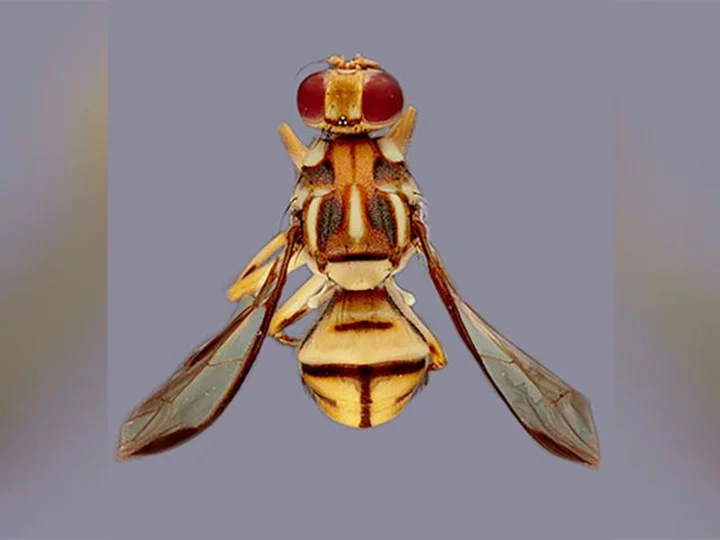A 79-square-mile area of Los Angeles County is under quarantine after an invasive fruit fly was found there -- the first such quarantine for the pest in the Western Hemisphere, according to California officials.
More than 20 Tau fruit flies were found in the Stevenson Ranch area, near the city of Santa Clarita, prompting the quarantine, the California Department of Food and Agriculture said in a July 25 news release.
The Tau fruit fly, originating in Asia, is a "serious pest for agriculture and natural resources," according to the release.
The fly is yellow and black with clear striped wings and is about 7mm in length. Its females lay eggs in fruit and vegetables -- like avocado, tomato, cucumber, citrus and melon -- and the larvae tunnel through and feed on the fruit, according to the agency.
It's believed the fly was introduced to the area by travelers bringing uninspected produce into the state -- a common pathway for invasive species, the California Department of Food and Agriculture said.
Unlike the quarantines Covid-19 weary residents are used to, this one is only for produce. Residents in the quarantine zone have been told to not move any fruits and vegetables from their property.
"They may be consumed or processed (i.e. juiced, frozen, cooked, or ground in the garbage disposal) at the property where they were picked. Otherwise, they should be disposed-of by double-bagging in plastic and placing the bags in a bin specifically for garbage," the California Department of Food and Agriculture said.
Stevenson Ranch is about 34 miles north of Los Angeles.
It isn't the first time the Tau fruit fly was found in California. The first detections were in San Bernardino County in 2016, and since then, "3 re-introductions have been delimited and successfully eradicated," the agriculture agency says on its website.
The state agency plans to work with the US Department of Agriculture and local authorities to eliminate the Tau fruit fly and prevent its spread.
Crews will cut host fruit and vegetables on properties within 200 meters of detections to inspect for fruit fly larvae, among other measures, the state agriculture agency said.









